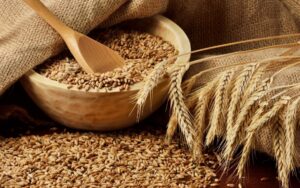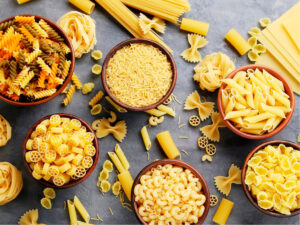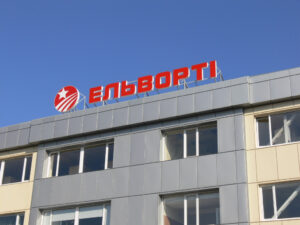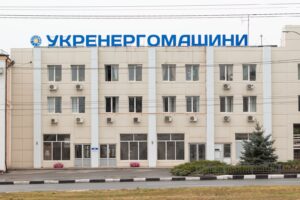
According to the Food and Agriculture Organization of the United Nations (FAO) and the United States Department of Agriculture (USDA), global wheat production in 2025 is forecast to reach around 809.7 million tons, which is 1.3% higher than in 2024.
The growth is expected to be driven by increased yields in Canada, Kazakhstan, China, and India, while southern Europe and North Africa remain at risk of lower production due to drought.
“The outlook for the global wheat market remains generally positive, and global stocks at the end of the season will remain stable despite active exports from the Black Sea region,” the FAO Cereal Supply and Demand Brief notes in its October review.
Top 20 countries in the world by wheat production in 2025 (FAO and USDA estimates)
These twenty countries produce more than 90% of the world’s wheat.
Despite overall growth in yields, global wheat stocks could decline by 1.6% to around 312 million tons by the end of 2025. This is due to increased domestic consumption in Asia and the Middle East, as well as active exports from Russia, Ukraine, and Australia.
Average global wheat prices remain volatile, but FAO analysts predict their relative stabilization while maintaining harvest and stock volumes.
Despite the war, Ukraine retains its status as one of the largest grain exporters. According to estimates by the Ministry of Agrarian Policy, in the 2024–2025 marketing year, the country exported about 15 million tons of wheat, supplying it to Egypt, Indonesia, Spain, Turkey, and Tunisia.
Ukraine ranks 11th–12th in the world in wheat production and is among the top five global exporters thanks to its high yields and logistics routes through the Danube and Baltic ports.
A detailed overview of the world’s major wheat producers from 1970 to 2024 can be found in the Experts Club analytical video: Watch on YouTube

The situation on the Ukrainian butter market is deteriorating after active summer exports, company warehouses are filling up, domestic sales are becoming increasingly difficult, and exports are facing additional challenges, according to industry analytical agency Infagro.
“Currently, only those producers who are willing to significantly reduce prices can sell their products consistently. These are usually companies that lack working capital. However, the current price level is unprofitable for most producers operating in the butter segment, along with skimmed milk powder or casein,” analysts explained.
They pointed out that due to the rise in raw material prices, production is becoming less profitable: the purchase prices for milk required to break even remain unattainable for most companies.
At the same time, at the end of October, there was a noticeable decrease in the price of block butter, while manufacturers of packaged products are in a slightly better position, but competition in this market is intensifying.
To increase sales, companies are forced to offer promotional discounts, which negatively affects profitability.
“The situation with exports is also difficult. Some companies are lowering prices to stay in foreign markets, particularly in Moldova. Demand for Ukrainian butter in the Caucasus remains, but sales volumes there are limited,” experts noted.
According to their information, expectations of additional opportunities after the introduction of new duty-free quotas to the EU have not been met—demand from European traders is accompanied by lower price offers that do not cover production costs.
Due to the unprofitability of production, some factories have already reduced or temporarily suspended butter production. As a result, production volumes in October were lower than last year, which is the first such case in recent times, Infagro concluded.

In 2025, domestic pasta producers will, for the first time in the history of Ukraine’s independence, manufacture 50% of their products from durum wheat grown by domestic farmers, according to Rodion Rybchinsky, director of the Ukrainian Flour Millers Association.
“This year, for the first time, 50% of the durum wheat that we (pasta producers – IF-U) previously purchased abroad will be replaced by domestic wheat. If this trend continues, I think that Ukraine will stop importing durum wheat within the next two years,” he said at the Agro2Food Profit forum in Kyiv on Wednesday.
The expert attributed this import substitution to climate change in the country. Currently, the Mykolaiv, Odesa, Khmelnytskyi, and partially Vinnytsia regions are suitable for durum wheat production due to global warming, Rybchynskyi said.
The head of the industry association suggested that it is quite realistic that domestic processing enterprises will not be able to cope with the volume of durum wheat grown by farmers in the near future.
Rybchynskyi recalled that a mill is currently being built in the Lviv region to process durum wheat into pasta. At the same time, he noted that its capacity may not be sufficient to process all the durum wheat grown by farmers.
The head of the Ukrainian Flour Millers Association added that Ukrainian producers will definitely export such products, but the export volumes are unlikely to be comparable to those of Italy.
As reported, the private enterprise “Zakhidny Bug” is building Ukraine’s first mill that will process durum wheat, as well as a pasta factory. The mill is scheduled to start operating in October 2025, and the factory in September. The design capacity of the first stage of the mill is 80 tons per day for durum wheat and 150 tons per day for soft wheat varieties. The second phase will increase capacity by another 200 tons for durum and 300 tons for soft varieties. The total investment in the project will amount to UAH 1 billion.
Durum (Triticum durum – Latin) is a hard wheat with a high protein and gluten content, making it an ideal ingredient for pasta, bread, and other bakery products.

Elvorti (Kropyvnytskyi), a manufacturer of sowing and soil cultivation equipment, earned nearly UAH 1.5 million in net profit in July-September 2025, compared to a loss of nearly UAH 6.4 million in the same period of 2024.
This result is based on the company’s interim financial report for nine months, published on Wednesday, according to which it increased its loss by 27.8% compared to January-September 2024, to UAH 15.9 million.
Earlier it was reported that in the first half of this year, the loss amounted to UAH 17.5 million (almost three times more than in the same period last year).
According to the report, Elvorti increased its net income by 18.5% in January-September, to UAH 502.8 million.
As reported, in January-June 2025, the company’s net income increased by 27.8% compared to the same period in 2024, to UAH 339 million. Thus, in the third quarter of this year, it increased by 3% to UAH 163.7 million.
According to the report, in the third quarter, the company exported products worth UAH 52.4 million, which accounted for 32% of sales for this period (in the second quarter – UAH 25.1 million). The main export markets are Kazakhstan, Moldova, Bulgaria, Latvia, and Romania.
In July-September, in particular, 115 seeders worth UAH 61.8 million, one cultivator worth UAH 616,000, 91 harrows worth UAH 30.4 million, four sprayers worth UAH 3.5 million, and two construction and road machines worth UAH 5.3 million were manufactured.
The average selling prices of seed drills were UAH 618,200, cultivators – UAH 326,600, harrows – UAH 357,600, and sprayers – UAH 1 million.
The company notes that Elvorti’s range of equipment is in seasonal demand, particularly seed drills and sprayers.
The main buyers of the equipment were, in particular, the Ukrainian companies “Tekhnotorg Don,” “Agro-Resource,” and “Agroprommontazh,” as well as Agropiese TGR Grup (Moldova) and Optikom OOD (Bulgaria).
Elvorti JSC, part of businessman Pavel Shtutman’s Elvorti Group, specializes in the production of sowing and soil cultivation equipment: seeders for sowing grain and row crops, cultivators for continuous and inter-row soil cultivation, and disc harrows for resource-saving soil cultivation.
Last year, the company reduced its losses by more than three times compared to 2023, to UAH 27.6 million, while its net income grew by 16.3% to UAH 570.5 million. This year, it plans to increase its revenue to UAH 712 million and break even.
As of September 30, 2025, the company employed 373 people.

JSC Ukrenergomashiny, more than 75.22% of whose shares are owned by the state, has planned capital investments of UAH 125 million for the current year, in particular for the organization and costs of relocating part of its production facilities to the Zakarpattia region, according to the company’s interim financial report for the first half of 2025.
“The total volume of planned capital investments for 2025 is UAH 125 million, including the organization of events and expenses for the relocation of part of the production facilities to the Zakarpattia region, which are planned to be covered by funds from the budget reserve fund in accordance with the relevant resolution of the Cabinet of Ministers,” the published report states.
As reported, in April 2024, the company announced without details its decision to establish branches in the western regions of Ukraine: Lviv, Zakarpattia, and Chernivtsi. However, the press service clarified at the time that the company would remain in Kharkiv, and the branches would be created to speed up the production of electric traction equipment and logistics processes in order to quickly deliver equipment under export contracts.
According to the financial report for the first half of this year, in 2025, the largest investments are planned for the development of existing production facilities, in particular, the purchase of new equipment, overhaul, and modernization of existing equipment. In particular, UAH 38.4 million is planned to be allocated to provide production with the necessary organizational and technical equipment and tools, and UAH 7.4 million to develop auxiliary production and a laboratory and experimental base.
“These measures are partially financed from our own funds and from funds attracted from the budget reserve fund,” the company said.
Ukrenergomashini reports that in the second quarter of this year, UAH 1.76 million was spent, including UAH 675,000 on the purchase of new equipment.
At the same time, it is emphasized that in order to preserve the production capacities of a strategic enterprise that is of particular importance for Ukraine’s energy sector, work is underway to relocate part of the equipment to western regions.
JSC Ukrenergomashyny reminds that it is one of the largest enterprises in the world and the only designer and manufacturer in Ukraine of a wide range of equipment for the energy sector, but during the war, it has mastered the production of a wide range of other special products, in particular, for urban transport (customer: Tatra-YUG LLC), an electric motor has been designed and launched into serial production. A number of products have also been mastered for Friendly Wind Technologies LLC.
In addition, the design of an automatic reversing switch and switch for trams and trolleybuses is being completed, a control unit for diesel locomotives has been developed, and the production of traction units has been established.
As reported, the company ended January-June of this year with a net profit of UAH 0.49 million, while for the same period last year it was UAH 20.81 million, with a slight decrease in net income to UAH 468.85 million.
According to the report, sales in the second quarter amounted to UAH 243.55 million, of which UAH 132.255 million were export deliveries (54.3% of sales), with products exported to Kazakhstan, India, Armenia, Bulgaria, and Hungary.
The main customers (more than 5% of total revenue) include Ukrhydroenergo, NAEK Energoatom, Centrenergo, Mykolaiv Locomotive Repair Plant, Kryukiv Railway Car Building Works, DTRZ, Tatra-Yug, as well as Kozloduy NPP (Bulgaria), Paks NPP (Hungary), AAEK (Armenia), and KBI Energy (Kazakhstan).
At the same time, the value of concluded but not yet executed agreements (contracts) as of the end of the second quarter of 2025 exceeds UAH 8 billion, and the total amount of payments remaining to be paid under these contracts is UAH 2.86 billion.
Ukrenergomashyny JSC names foreign companies Andritz (Austria), Voith (Germany), General Electric (USA), and Bharat Heavy Electric Ltd. (India) as its main competitors and assesses competition in the markets as high.
JSC Ukrenergomashiny is the only manufacturer of turbine equipment for hydro, thermal, and nuclear power plants in Ukraine. It also produces electric motors for rail and urban transport.
As of July 1, 2025, the company employed nearly 2,600 people.

Westinghouse is discussing with Energoatom the production of individual modular units for AP1000 reactors in Ukraine, particularly in the western regions, according to Dan Lipman, president of Westinghouse’s Energy
Systems business unit, in an exclusive interview with Interfax-Ukraine.
“We buy where we build. This means that Ukraine can start manufacturing some of the modules right now,” he said.
AP1000 technology involves modular construction, which reduces the time required to build units and allows for the localization of part of the production.